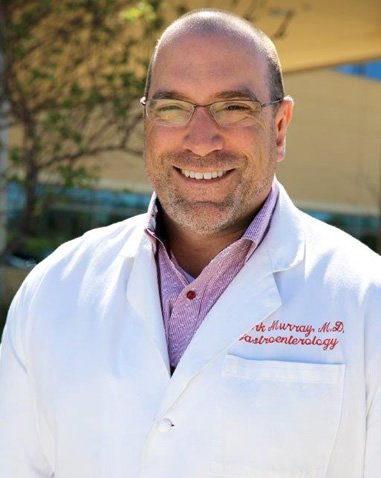Endoscopic Ultrasound (EUS)
What Is EUS?
EUS is a diagnostic test which combines endoscopy and ultrasound into one procedure. Endoscopy allows for direct visualization of the lumen of the gastrointestinal (GI) tract using a small fiberoptic camera. The ultrasound device (attached to the tip of the endoscope) uses soundwaves to produce pictures of the walls of the GI tract, as well as images of surrounding structures such as the pancreas, liver and bile ducts. It is considered a minimally invasive procedure and is frequently performed on an outpatient basis.
Why Do Doctors Perform EUS?
EUS allows your physician to obtain a very detailed look at your GI tract and its surrounding structures. In certain situations, it can also provide the opportunity for diagnostic (tissue sampling) and therapeutic treatment options. Frequent gastroenterology-related uses include:
- Diagnosis and staging of GI tract cancers
- Diagnosis and, occasionally, treatment of pancreatic disorders
- Evaluation of problems in the bile ducts and gallbladder
- Diagnosis and assessment of liver diseases
How Do I Prepare for EUS?
Preparing for EUS is much like preparing for a standard endoscopy. Typically, your gastroenterologist will have you discontinue oral intake (eating and drinking) a few hours prior to the procedure. Depending on the portion of your GI tract being evaluated, you may also be asked to take a bowel cleanse. If you take any blood thinners, you will likely be asked to stop these a few days prior to the procedure to minimize bleeding risks. Specific instructions regarding overall preparation will be provided by your physician when scheduling you for the procedure.
What Can I Expect Afterwards?
EUS is carried out much like standard endoscopy in that sedation/anesthesia will be used throughout the procedure. As such, you will need to spend a short amount of time in a recovery area where your vital signs will be monitored while you wake up. Once awake and deemed stable for discharge, you will be allowed to leave with a responsible person (close friend or family member). Due to the use of sedation, you will not be allowed to drive yourself home. Typically, you will be asked to rest at home for the remainder of the day and throughout the night. Resumption of regular activities is usually allowed the next day.

 Meet Dr. Mark Murray
Meet Dr. Mark Murray Meet Dr. Eric M. Hill
Meet Dr. Eric M. Hill Meet Dr. kevin Ho
Meet Dr. kevin Ho